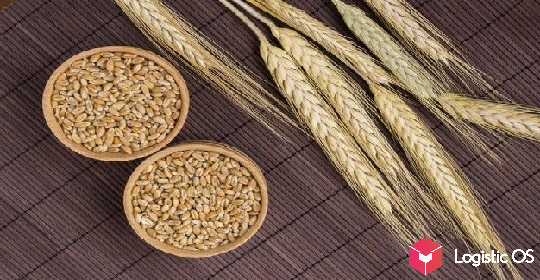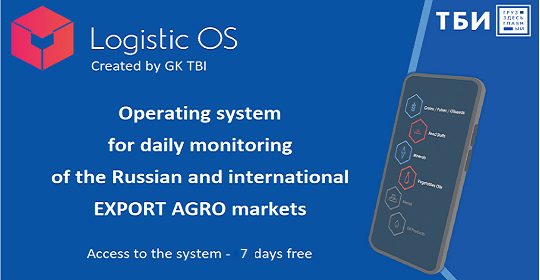Despite the fact that, in general, the level of agricultural exports should be maintained, a significant drop in world prices will lead to its decline in monetary terms.
This thesis will be recently voiced by the Director General of the Institute for Agricultural Market Studies Dmitry Rylko.
In his opinion, the export potential also decreased slightly if we compare the parameters of 2022 and 2023.
True, in the first half of this year, the level of exports can even be called a record, and the result of the second half of the year promises to be very impressive.
But at the same time, of course, there is the aforementioned decline in prices, so that even the proceeds from the sale of grain may be reduced.
But it is grain + oilseed products that make up the lion’s share of Russian agricultural exports (all other product categories account for less than 40%).
What are the volumes of Russian exports today?
If we take the results for that year, then the Russian Federation was in 17th place in the top of the world’s main exporters of agricultural products.
Its global market share has risen to around 2%.
At the same time, the growth rates turned out to be impressive: Russia immediately increased the rate of export of such products by 2.5 times in just one year, this is the most rapid jump in the last 10 years in the top 20 countries supplying agricultural products to the world market.
If we talk about absolute figures, then last year Russian agricultural exports reached 42 billion rubles, which is 12%.
In particular, the proceeds from the sale of grain products increased by 18%, oil and fat — by a quarter, meat — by 23%.
At the same time, revenue from fish exports decreased by 12%, and dairy products by 2%.
However, in general, it can be stated that Russia coped well with the complex challenges of the last year, which were associated, first of all, with the introduction of a large number of anti-Russian sanctions.
“The difficult geopolitical situation in the world has led to the transformation of exports of agricultural products.
Russian companies have adapted to the new reality — they have rebuilt logistics routes and financial settlements with counterparties, — says Sergey Levin, Deputy Head of the Ministry of Agriculture. — The state, for its part, adjusted the conditions for providing state support and directed its efforts towards maximum assistance to business.
Thanks to the joint work, Russian agribusiness companies continue to increase their presence in the global food market, ensuring the continuity of supplies and making a significant contribution to solving the problems of global food security.”

